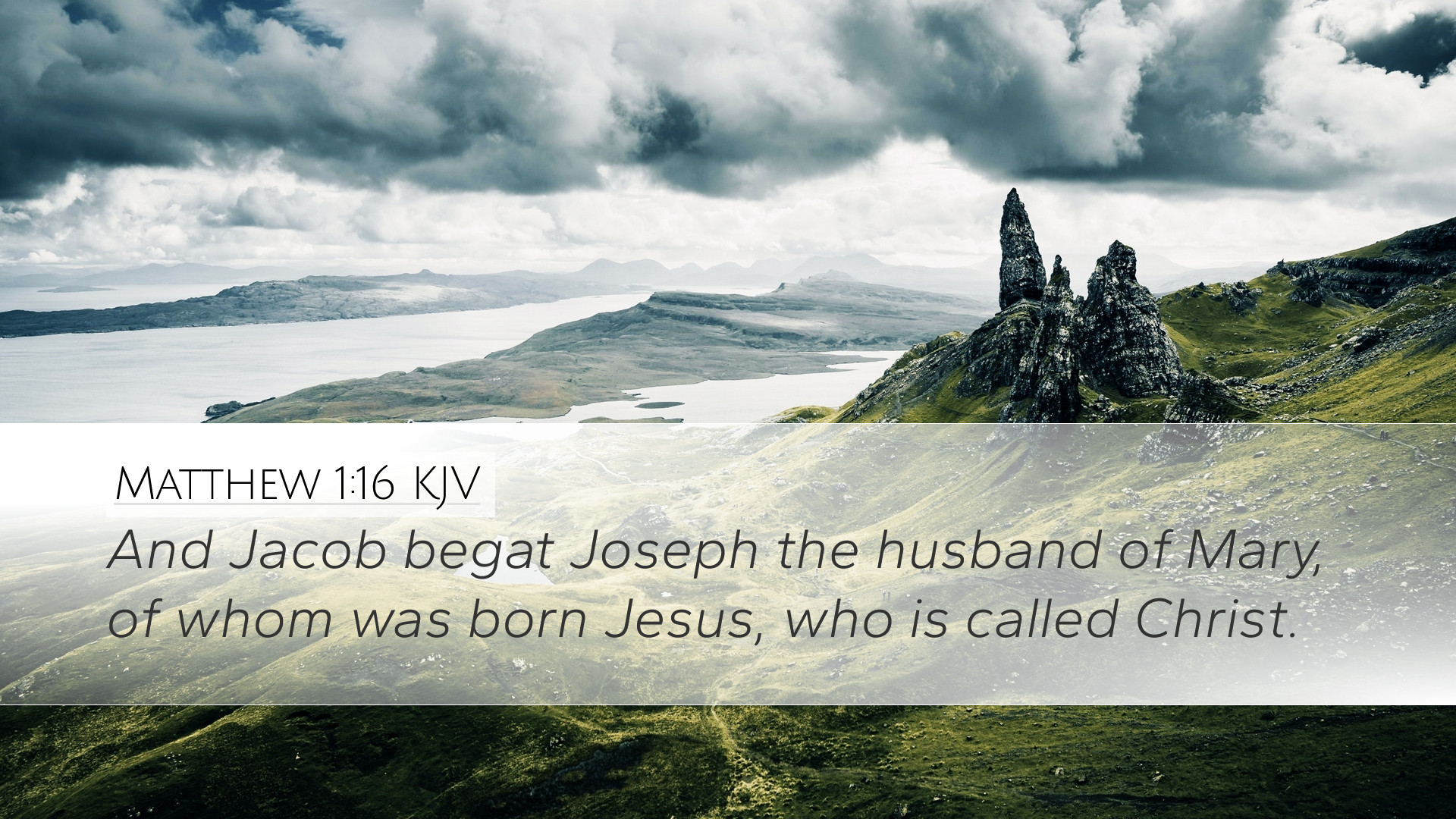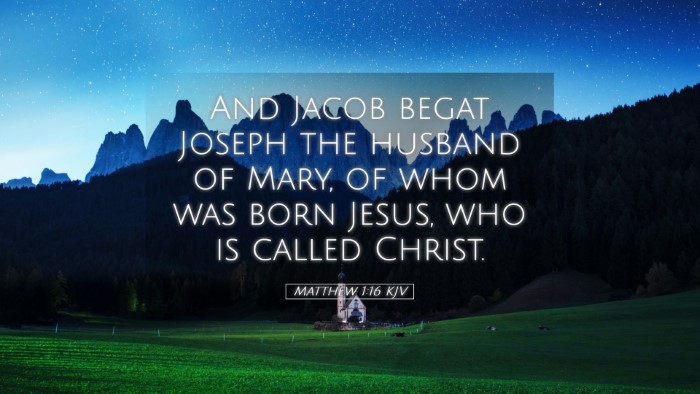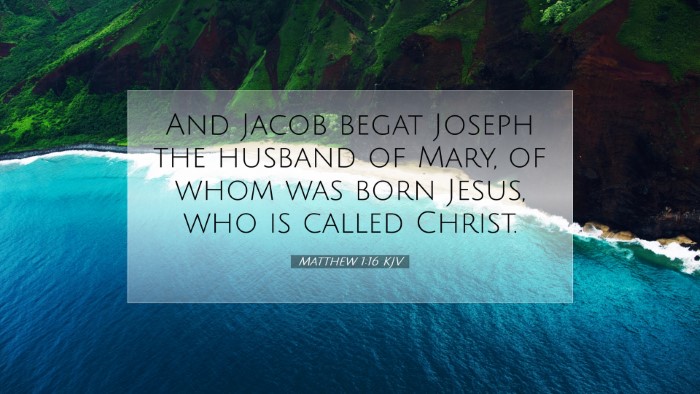Matthew 1:16 - Commentary and Insights
Verse: "And Jacob begat Joseph the husband of Mary, of whom was born Jesus, who is called Christ." (Matthew 1:16)
Introduction
This verse is pivotal in framing the genealogy of Jesus Christ, linking His earthly lineage back to significant historical and theological figures. In examining Matthew 1:16, we gather insights from various public domain commentaries, providing depth and a multifaceted understanding of this profound verse.
Genealogical Structure
Matthew presents Jesus' lineage in a deliberate structure, emphasizing the fulfillment of Old Testament prophecies. The genealogy serves not just as a record of ancestry, but as a means of validating Jesus' messianic identity.
- Historical Context: Matthew traces the lineage from Abraham through David, ultimately down to Joseph, establishing Jesus as a true descendant of David, thus fulfilling the covenant promises made to him.
- Theological Implications: This lineage underscores the divine plan in which God orchestrated history to bring about the Messiah through a specific lineage.
Jacob, Joseph, and Mary
The transition from Jacob to Joseph is crucial. Each name mentioned in the genealogy signifies a chapter in Israel's history. Joseph, referred to as the “husband of Mary,” introduces a significant shift: Mary is the conduit through which Jesus enters the world.
- Joseph’s Role: Joseph is presented as an honorable figure, although his role does not imply biological fatherhood. He is a stand-in, a supportive guardian in the divine plan.
- Mary’s Significance: The mention of Mary highlights her pivotal role and the miraculous nature of Jesus' conception, emphasizing the virgin birth—a cornerstone of Christian doctrine.
Title "Christ"
The phrase "who is called Christ" encapsulates Jesus' identity as the anointed one. It is imperative to note that in Jewish context, 'Christ' (Mashiach) signifies God's promised deliverer.
- Messianic Recognition: By calling Jesus "Christ," Matthew affirms His identity and mission as the one who fulfills the messianic prophecies.
- Implications for Believers: Understanding Jesus as the Christ invites believers to explore the implications of His authority, identity, and the profound meanings embedded within His mission.
The Importance of Ancestry
In the cultural context of the time, ancestry played a significant role, providing socio-religious legitimacy. Matthew's genealogy is founded on precise historical claims.
- Direct Lineage: Each name carries weight, symbolizing not only familial ties but also spiritual heritage, demonstrating that Jesus is the culmination of God's covenantal promises to His people.
- Inclusivity of Gentiles: Notably, Matthew’s genealogy includes women and gentiles, hinting at the inclusive nature of Christ’s mission. This serves as a precursor to the Great Commission's later directive, reaching beyond Jewish boundaries.
Robertson's Insights
According to A.T. Robertson, this passage is a critical juncture in understanding the unique manner in which Jesus entered humanity. He remarks on the significance of Joseph's legal rights as a link to David's throne, which reinforces Jesus' claim to kingship.
Conclusion and Significance
The verse Matthew 1:16, while succinct, incorporates profound theological riches that enhance our understanding of Jesus' identity and purpose. It offers a glimpse of God's sovereign orchestration of history to redeem humanity through Christ.
- For Pastors: This text provides a foundation for preaching on the importance of lineage, identity, and divine purpose.
- For Theologians and Students: A study of this genealogy prompts deeper exploration into the nature of Christ’s kingship and messianic role.
- For Scholars: The historical accuracy and cultural implications warrant further scholarly investigation into the genealogy's function within Matthew's Gospel.


